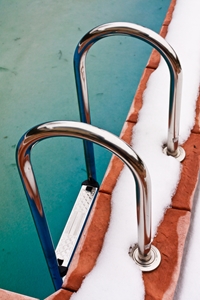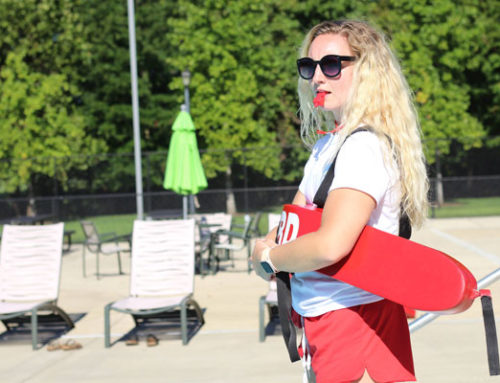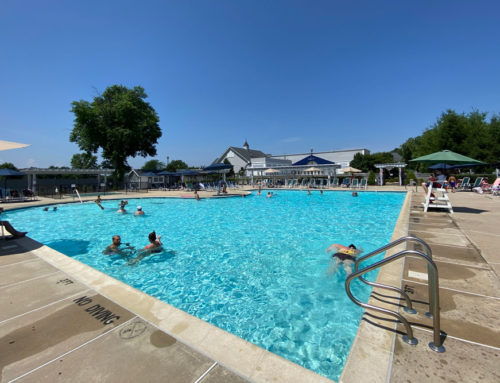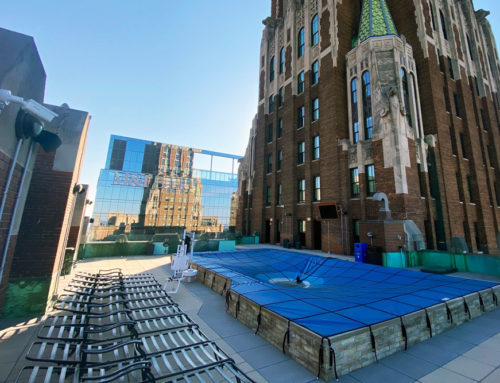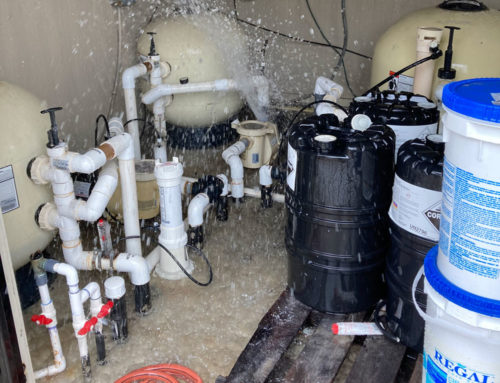If you’re a new property manager or new to your pool facility and are shutting down your pool for the first time, here are some helpful tips and information.
Most regions winterize to some extent
It’s not just commercial pools in the Northeast who have to prepare for winter. For instance, Californians still have to reduce the filtration time from 12 to six hours during the colder months. If they don’t, their pool equipment can break, and they may find themselves having to spend an arm and a leg to replace it.
For individuals in northeast states, winterizing a pool includes blowing and plugging the pipe lines, adding chemical treatments and covering the pool with a safety cover. The chemicals are especially important as they prep the pool for the spur of algae that can grow quickly before freezing temperatures hit in the fall and again in the spring. If not properly contained, these organisms can discolor your pool, give it an unpleasant odor and cause severe staining, which can be expensive to remove.
Blowing and plugging the pipes empties them of water. Any water that lingers in the pipes is subject to freezing temperatures, which can cause the pipes to crack.
Consider calling the professionals
Although it’s possible to winterize a pool yourself, there is always the option of letting professionals come in and do it for you. This can give you some peace of mind that it will get done quickly and effectively. In addition, if anything happens to go wrong during the winter, these professionals can come back in the spring to address any issues.
Although you may be sad to see the pool season come to end, it’s important that you winterize your pool properly to avoid any problems. Plus, an issue-free winter means that your community residents can get back to swimming sooner rather than later once the warmer weather rolls around.

